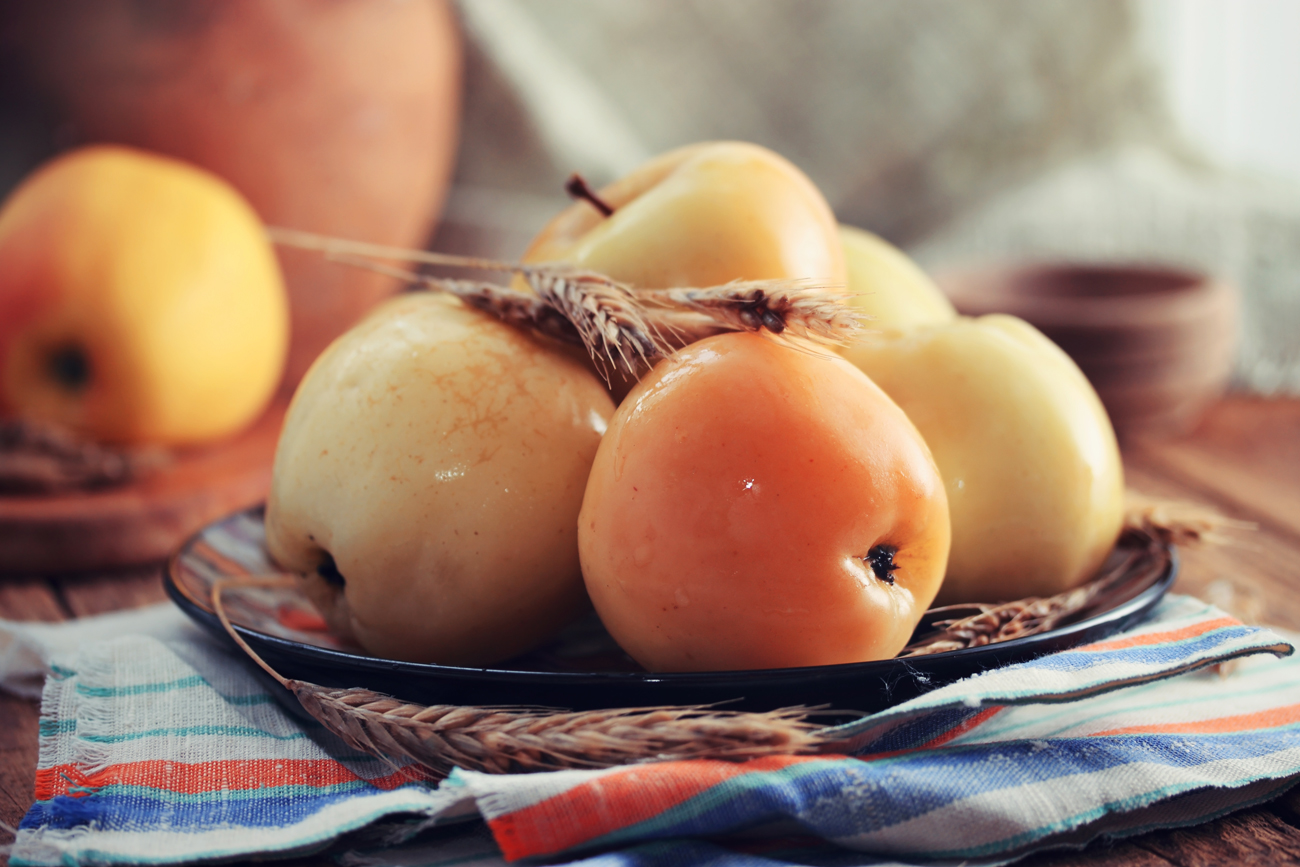
Pickled apples: try the taste renowned poet adored!
Vostock-PhotoUnlike most of his fellow 19th-century aristocrats, poet Alexander Pushkin was not picky about his diet. He preferred simple traditional Russian food and adored the dishes cooked by his nanny, Arina Rodionovna, who was an important figure for both his life and work. In one poem, Pushkin addressed Arina as “Dear doting sweetheart of my childhood, // Companion of my austere fate!” (as translated by Avril Pyman). Arina Rodionovna, who was a serf of the Pushkin family, cultivated the love for folk culture and folklore in the soul of the poet.
Pushkin valued Arina’s simple home-cooked meals much more than dainty foreign dishes. The poet’s close friend Pyotr Vyazemskiy once said: “Pushkin was really not a kind of gourmet. I think he even didn’t value the culinary art and wasn’t able to pierce its mysteries; but he was a heavy eater of certain dishes.”However, a diet of traditional Russian food was not the best one for preserving a dashing figure, so Pushkin, like his English counterpart George Lord Byron, fasted for much of the day, and made pickled fruits and vegetables the main part of his evening meal. When a guest at the Trigorskoye estate, Pushkin asked his hosts to bring him pickled apples even past midnight. Vyazemskiy even commented on this strange habit: “Pickled apples really put him in a state of ecstasy.”
Pickling apples allows the fruit to retain all its nutritious properties while adding a pungent flavor and piquant scent. With an enormous amount of vitamin C, pickled apples are a natural way to fight off infection. They are also full of calcium – good for strengthening bones, nails and teeth.Apples used for pickling should be rather hard and as flawless as possible. Any late or winter variety can be used, but the overwhelming favorite in Russia is the antonovka. Pickled apples should be made in a large ceramic or glass pot.
2. Make the press: cover your future pickled apples with a clean cloth, then place something flat on the cloth (it can be any top or cutting board, but its diameter should be less than that of the vessel, leaving the gap between its edging and the top). Traditionally, special wooden boards were used for this purpose. Place something heavy on top.
3. Prepare the pickling juice: boil the water, cool it down (it should be warm), then add salt, honey and malt. Stir the ingredients.
4. Let the mixture cool down then stir it once again.
5. Pour it into the vessel without removing the press. Put the vessel into a cool place (15-18° C).
Don’t worry if the fluid level goes down: it’s completely normal.
The most important point is that you should not remove the press until the very of the preparation process, otherwise the apples will quickly go bad.
The first phase, fermentation, lasts 6-7 days.
6. After the fermentation phase, move the vessel to a cold place for the curing process (like a cellar or refrigerator, around 4-7° C) . Usually it takes about 4-6 weeks for the pickled apples to be ready, but then you’ll have the chance to try the very taste Alexander Pushkin adored.
All rights reserved by Rossiyskaya Gazeta.
Subscribe
to our newsletter!
Get the week's best stories straight to your inbox